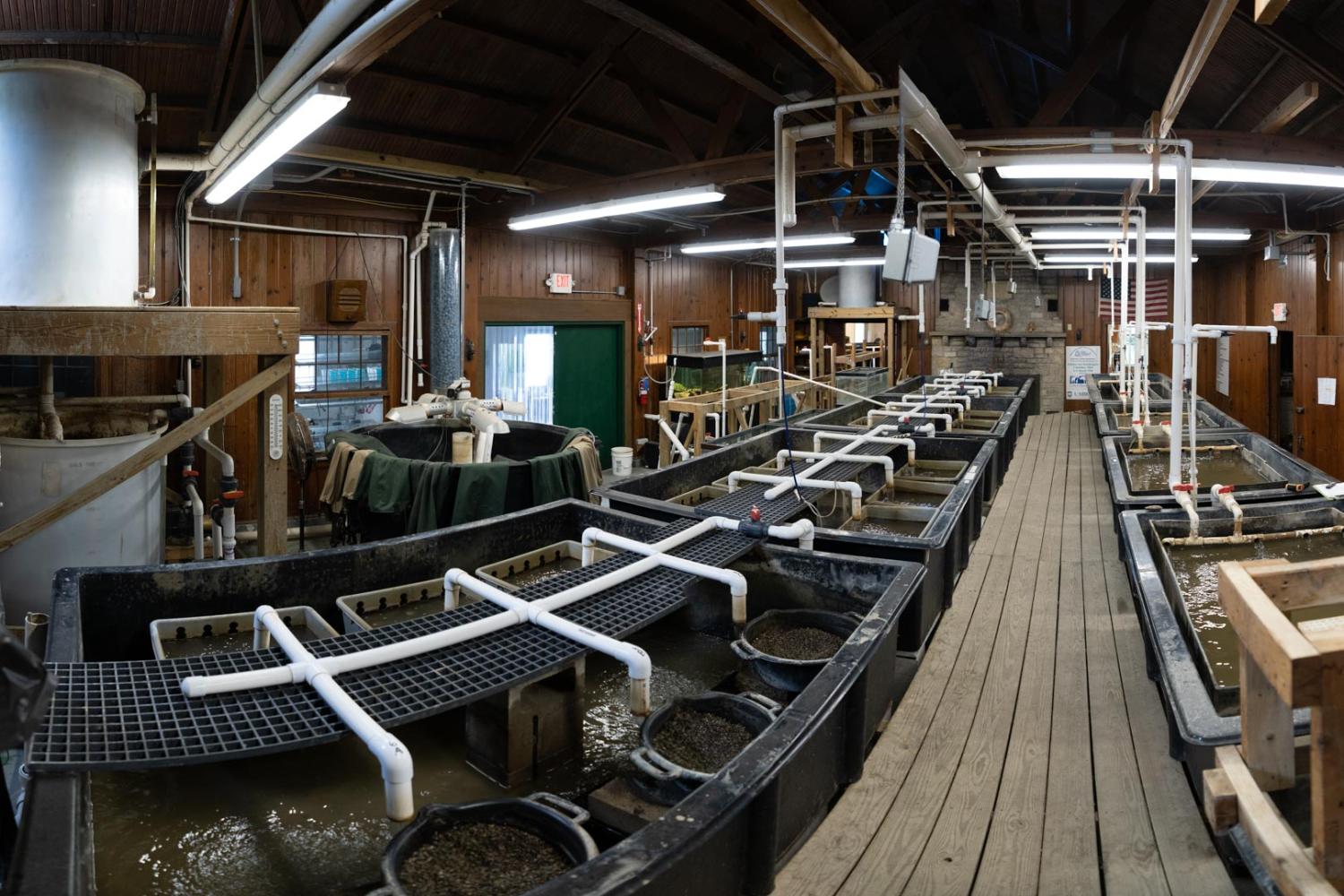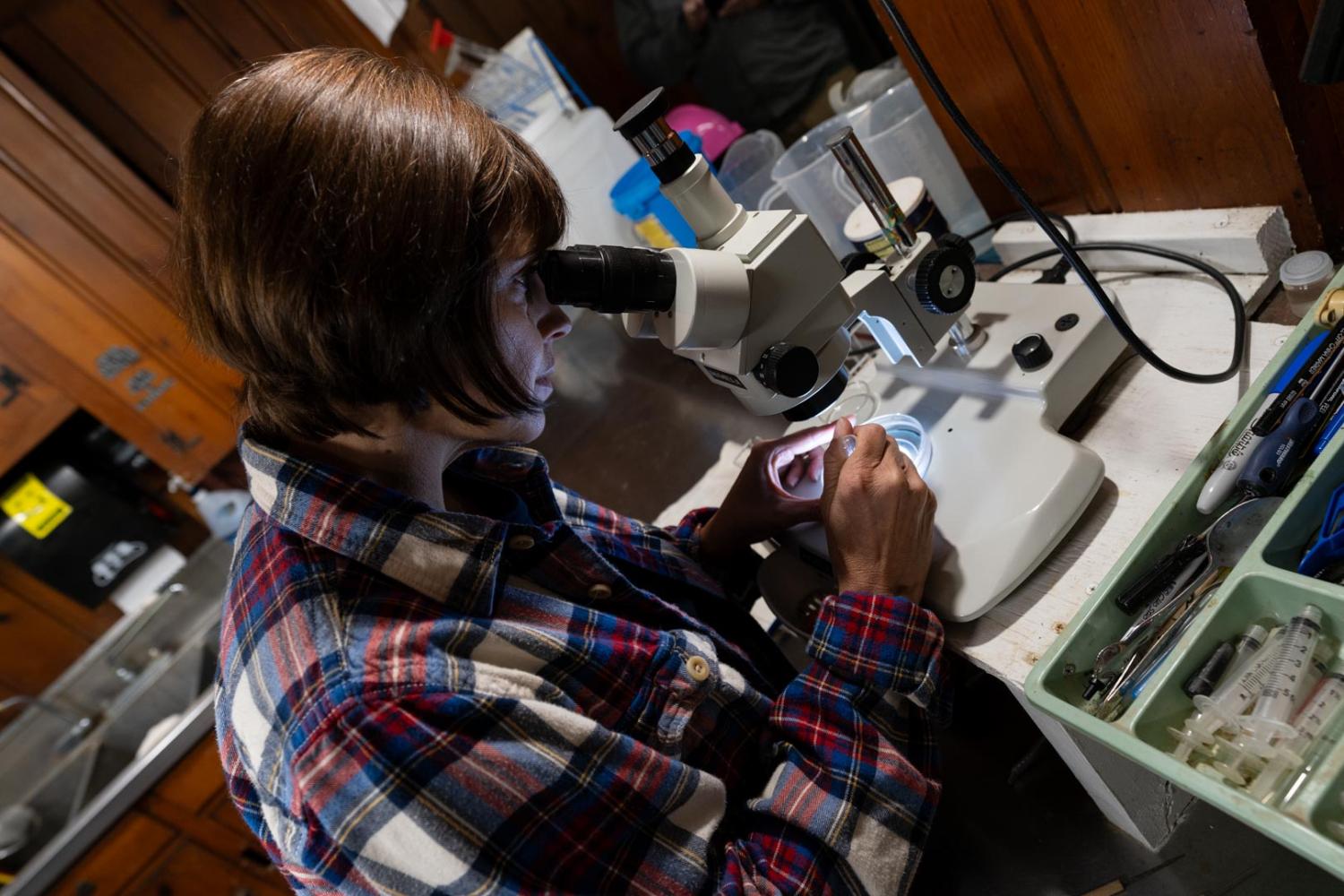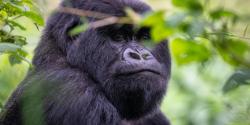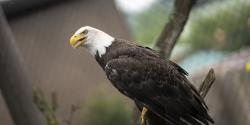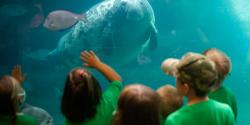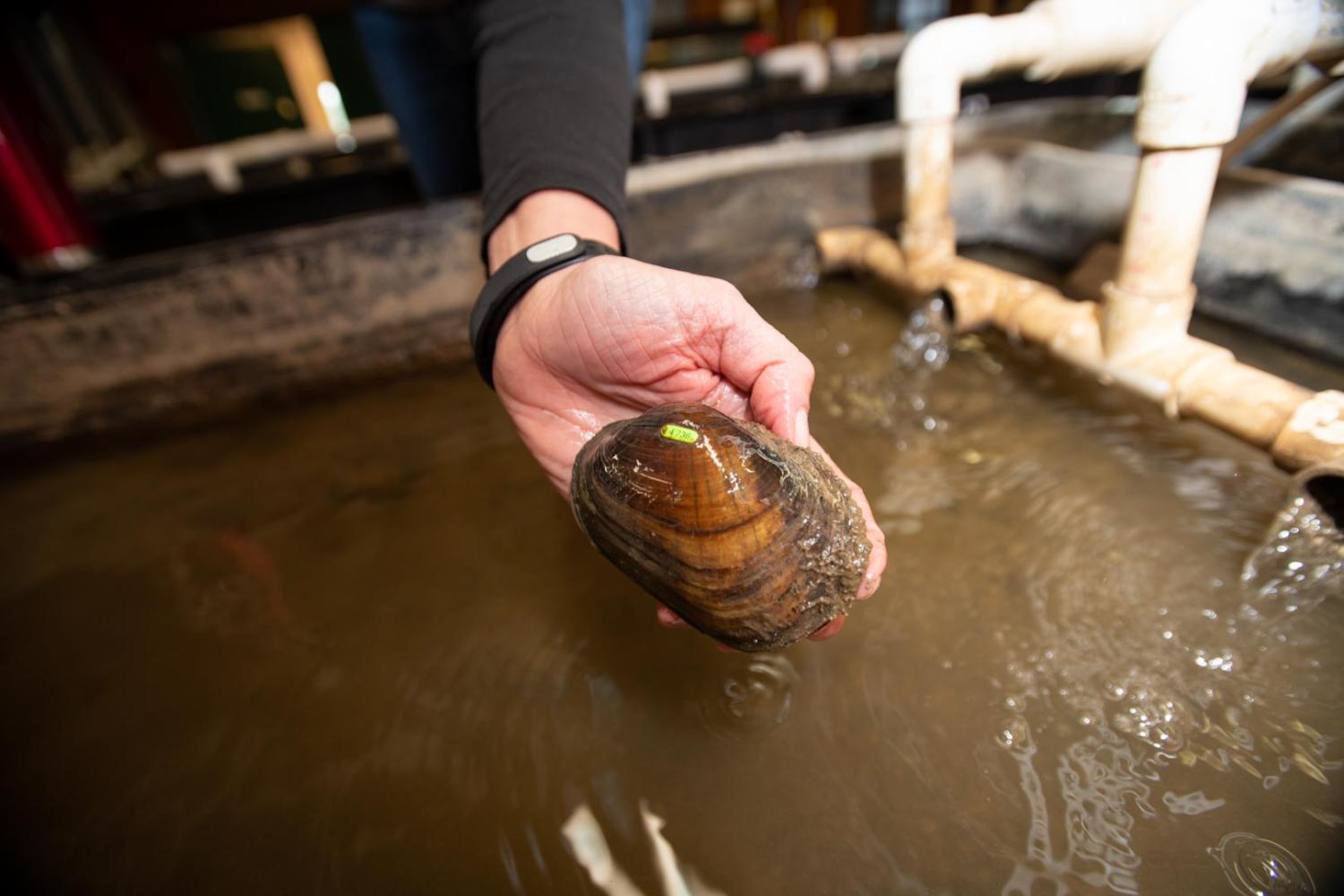 Local biodiversity conservation is of utmost importance, and the Columbus Zoo and Aquarium has partnered with many educational and public entities and groups throughout the years to help lead local initiatives aimed at protecting some of the most imperiled species in the region.
Local biodiversity conservation is of utmost importance, and the Columbus Zoo and Aquarium has partnered with many educational and public entities and groups throughout the years to help lead local initiatives aimed at protecting some of the most imperiled species in the region.
Among these remarkable efforts is the Freshwater Mussel Research and Conservation Center, a facility dedicated to the study and preservation of freshwater mussels and other aquatic organisms, meeting six primary needs:
- To assess the health of mussels both in their native range and in professional care.
- To establish a brood stock and propagate mussels for reintroduction to mitigate population decline.
- To conduct basic research, including identifying fish host relationships and developing in vitro propagation methods.
- To offer temporary refugia to mussels removed from locations impacted by environmental disasters or during translocations between different locations.
- To provide training to high school, undergraduate, and graduate students.
- To provide educational outreach to Zoo guests and local educational institutions.
This unique facility is a result of a multi-organization partnership, all of whom have impactful roles:
- The Ohio State University drives the science and the work.
- The Ohio Division of Wildlife assigns priority of the work and leads species recovery efforts.
- The Ohio Division of Wildlife and the Columbus Zoo share financial support of the facility, staff, and operations.
- Columbus Recreation and Parks Department owns the land and buildings and leases it to the Zoo for a nominal feel.
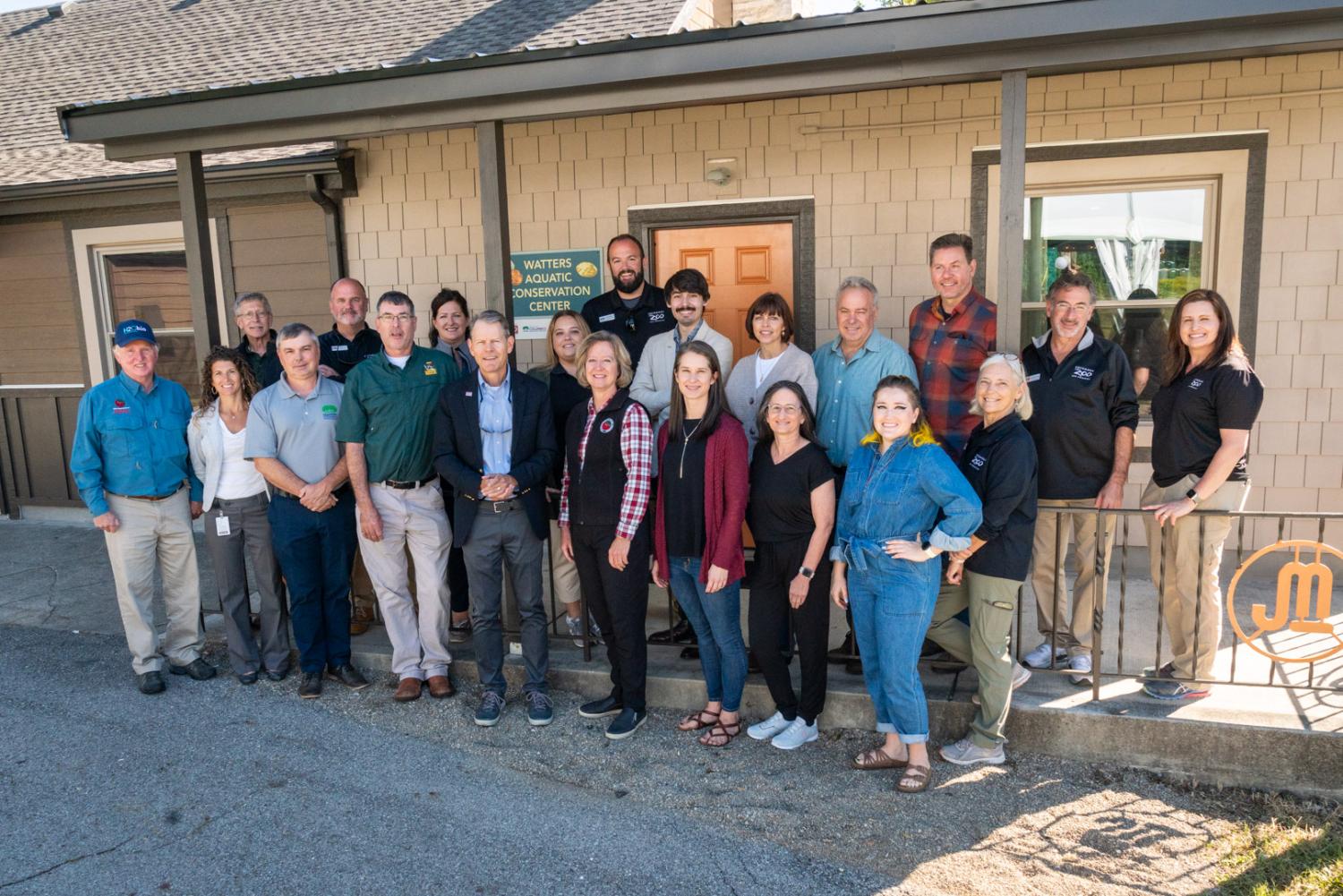
Originally serving as a lodge and retreat for the Jeffrey Manufacturing Company, this property underwent a significant transformation in 2001-2002 to become the cornerstone of freshwater mussel research and conservation in the region. Driven by the vision and dedication of individuals like Dr. Tom Watters, Doug Warmolts (the Zoo’s Vice President of Animal Care), Mike Brittsan (retired Zoo Curator), Ohio Division of Wildlife biologists, and numerous volunteers, the facility emerged as a shining example of what can be achieved when passion and commitment meet conservation science.
Why Are Freshwater Mussels Important?
Freshwater mussels play a vital role in maintaining healthy river ecosystems, yet many species face endangerment at various levels. In fact, approximately 20% of North America’s threatened and endangered species are freshwater mussels.
Over the past 20 years, the Freshwater Mussel Conservation and Research Center has taken pioneering steps to address these challenges, including releasing thousands of federal and state-endangered Northern Riffleshell and Clubshell mussels into Big Darby Creek all the way from the Allegheny River of Pennsylvania as part of the largest relocation of an endangered species in the history of Ohio.
The team has also been involved in the process of in vitro propagation of mussels. This innovative technique bypasses the need for host fish, potentially enabling the production and rearing of thousands of mussels, rather than just a few hundred through traditional methods.
Ohio is Invested in This Work
In 2022, the Columbus Zoo received a significant boost of $500,000 from the Ohio Department of Natural Resources to support upgrades and conservation efforts at the Freshwater Mussel Conservation and Research Center. This injection of funds underscores the facility's importance and commitment to its mission.
After 20 Years of Work, The Facility is Rededicated and Celebrated
On September 15, 2023, the Freshwater Mussel Conservation and Research Center celebrated its 20th anniversary with a special ceremony and program, including its rededication. Now known as the Watters Aquatic Conservation Center, the facility was named after Dr. Tom Watters, Curator of Mollusks at The Ohio State University Museum of Biological Diversity and co-founder of the Zoo’s mussel facility.
Distinguished guests, including Dr. Renee Watters, Dr. Watter’s widow, representatives from the Ohio Department of Natural Resources, the Ohio State University, City of Columbus, and the Columbus Recreation and Parks Department attended the event, marking the beginning of an exciting new phase in freshwater mussel conservation.
In a world where freshwater ecosystems are increasingly threatened, the Watters Aquatic Conservation Center and its unique partnership, stands as a beacon of hope. With its dedication to research, education, and collaboration, it is poised to make a significant impact on the preservation of these remarkable, yet vulnerable, creatures and the ecosystems they call home.
The Power of Research and Education
The primary focus of the Watters Aquatic Conservation Center is to deepen our understanding of imperiled mussels and their ecosystems. This encompasses host fish identification, captive husbandry requirements, reproductive biology, and nutrition. For example, the identification of host fish for the federally endangered clubshell has opened doors for potential mussel cultivation and reintroduction efforts.
Additionally, the facility serves as a crucial sanctuary during unforeseen environmental disasters. The recent silage spill on Big Darby Creek demonstrated the importance of such refugia for mussels (this was several years ago).
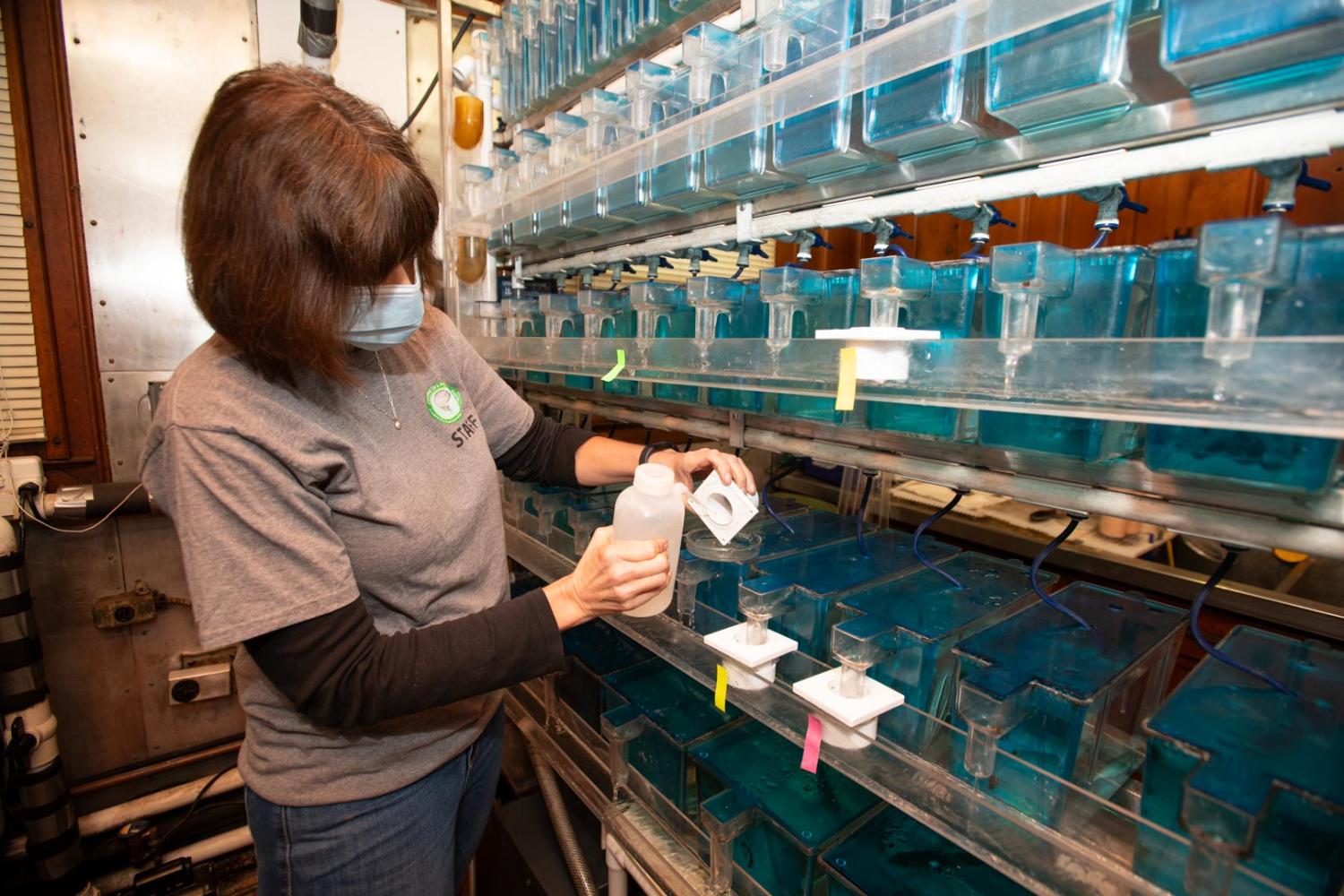
Partnerships That Propel Conservation
Collaborations like these bring together expertise, resources, and a shared commitment to safeguarding freshwater biodiversity.
In a world where the preservation of biodiversity is paramount, the rededication of the Watters Aquatic Conservation Center marks the beginning of an exciting new chapter in freshwater mussel conservation. With a history of successful partnerships, innovative research, and a commitment to education, this facility stands as a beacon of hope in the face of increasing threats to freshwater ecosystems. As it continues to deepen our understanding of imperiled mussels and their environments, the center, along with its dedicated partners, is poised to make a significant impact in safeguarding these remarkable yet vulnerable creatures and the ecosystems they call home.
